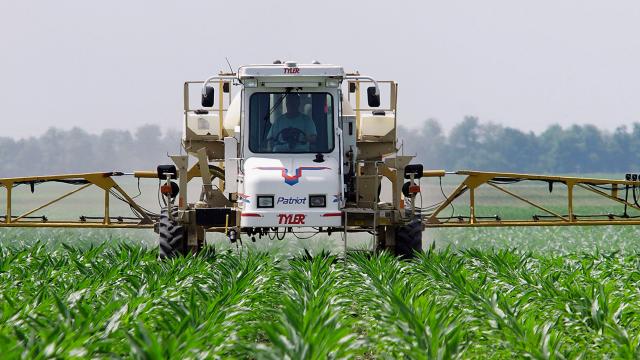Glyphosate, better known as Roundup, is widely used to kill weeds, especially along with genetically modified crops engineered to be glyphosate-resistant. The World Health Organisation today released an assessment calling the weedkiller “probably carcinogenic” But it’s not as scary as it sounds.
The reason is subtle but worth understanding. The WHO’s Agency for Research on Cancer, or IARC, is a very respected organisation whose job is hazard assessment — or whether a substance can cause cancer at any dose, regardless of how realistic the dose is. “In other words,” writes Dan Charles in NPR, “the IARC is saying that glyphosate probably could cause cancer in humans, but not that it probably does.” Whether realistic doses of glyphosate are dangerous is up to organisations like the EPA to regulate.
This distinction is important is because, well, to be alive is to accept a certain amount of cancer risk. The IARC classifies substances into Group 1 (carcinogenic to humans), Group 2A (probably carcinogenic), and Group 2B (possibly carcinogenic). Group 1 includes alcohol, sunlight, and salted fish — as well as smoking and plutonium. Glyphosate is now classified in Group 2A.
The IARC did not find evidence that links glyphosate to cancer in humans. A large study following thousands of farmworkers called the Agricultural Health Study found no evidence that the people most exposed to glyphosate had higher rates of cancer. The IARC’s conclusion is based on studies in animals and cells that suggest a cancer link.
Even among scientists, the IARC’s conclusion has its dissidents. Chemist Oliver Jones told the UK Science Media Centre, which gathers the opinions of independent scientists, that, “This sounds scary and IARC evaluations are usually very good, but to me the evidence cited here appears a bit thin.” None of this is to claim that glyphosate is perfectly safe either. Whether something will cause cancer is just not an easy yes or no.
A monograph of the IARC’s assessment, which included four other pesticides, was published online in The Lancet Oncology today. The full report will be published later this year. [The Lancet Oncology, NPR, Nature]
Picture: AP Photo/Seth Perlman
